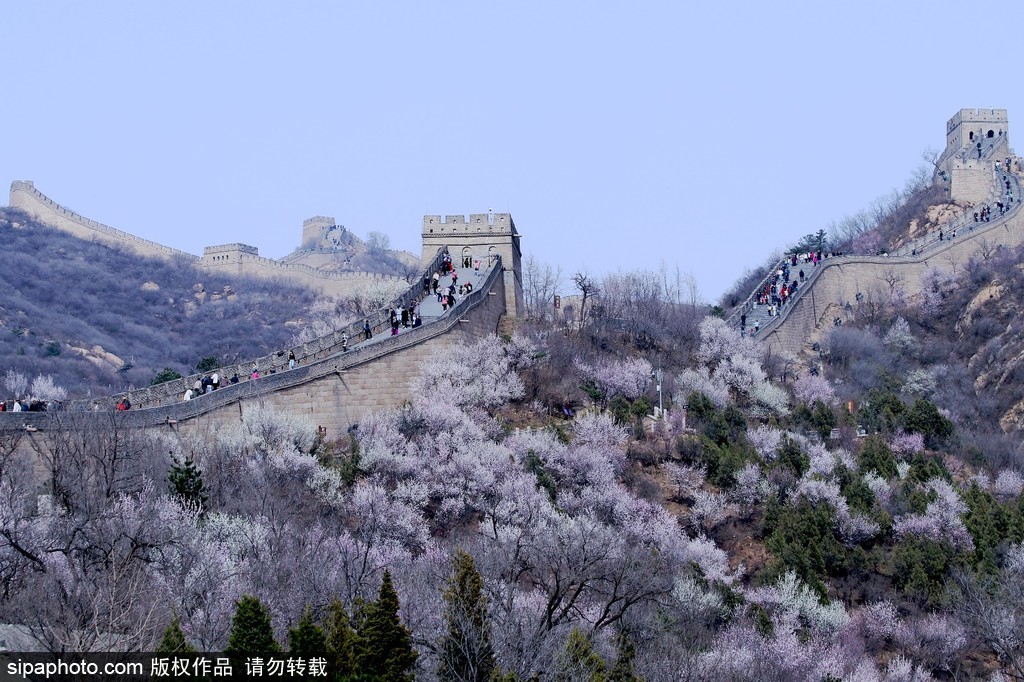Parts of north China including Beijing, Hebei Province and Inner Mongolia Autonomous Region saw heavy snow on Thursday.
The snow started at around 5 a.m. in Beijing Thursday, following snow on Tuesday.
It started from the western and northern mountain areas, and gradually reached most parts of the city. It is expected to last until Thursday night, with a maximum precipitation of 4 mm in the western and northern mountain areas, and an average precipitation of 1 mm in downtown areas, according to the Beijing meteorological bureau.
The bureau has issued an alert for icy roads as of this morning.
More than one hundred bus lines were affected, and flights have been delayed and canceled at Beijing International Airport due to the snow.
According to the National Meteorological Center, north China is experiencing this winter's largest and heaviest snow on Thursday, with estimated accumulations of as much as 2.5 centimeters.
Snow and low temperatures have hit most parts of the neighboring Hebei Province since Wednesday. The provincial government has issued emergency notices to require departments of heating, transportation, public security and city management to make preparations for the lingering snow and low temperatures in the following days.
Local power supply companies have strengthened patrols to ensure stable power supply.
Many parts of Inner Mongolia also saw snow early Thursday morning. The capital city Hohhot was covered with snow by 8:00 a.m.
"Although the heavy snow is inconvenient, it is very exciting. Only snow can make the winter feel real," said Wei Qiang, a resident of the city.
The region has embraced a dry winter with the capital city receiving no prior snowfall. But a round of snow, strong winds and cool weather will continue to batter most parts of the region until Friday, according to the local meteorological observatory.
So far, local traffic and agricultural facilities have been affected by the snowy weather. Relevant departments have been ordered to take precautionary measures and solve problems in a timely manner.



